Wartime Memoirs - Judith Sternberg Newman
Holocaust Survivors have EP & RI Connections
As acts of ethnic hate crimes have risen across the United States, I am reminded of the plight of local Holocaust survivors, the late Senek and Judith Newman of Rhode Island. A report from the Anti-Defamation League (ADL), a Jewish civil-rights group, and the Center on Technology and Society, October 2018, illuminates the depth of anti-Semitism in the United States and indeed, across Europe.
The number of anti-Semitic incidents across the US as a whole rose 57% in 2017, according to an audit by the ADL, the largest single-year increase on record and the second highest number since the ADL started tracking such data in 1979 (ADL Center for Technology and Society Belfer Fellows Samuel Woolley and Katie Joseff). The statistics don't show the number of unreported incidents.
The sad fact, however, is that many anti-Semitic incidents have also included physical assaults, vandalism, and attacks on Jewish institutions.
On Saturday, October 27, 2018, 11 people were killed in a Jewish synagogue in Pittsburgh. Pennsylvania. Many others were injured. The shooter, with an assault rifle and other weapons, told police that "all Jews need to die."
Between 1939 and 1945, the Nazis would use concentration camps to carry out the systematic murder of roughly 6 million European Jews in what would become known as the Holocaust. Adolph Hitler, like many anti-Semites in Germany, blamed the Jews for the country’s defeat in World War I, and for the social and economic upheaval that followed.
I was blessed to have met an incredible family who settled in Rhode Island after surviving the horrors of the Auschwitz Concentration Camps. After World War II ended, Judith Sternberg married Senek Newman, a concentration camp comrade and they found their way to the United States in 1947. Together these survivors of horrific terrors began a new life in America. Senek was the sole survivor of a family of ten. Judith's mother, two sisters and three brothers all died in the Auschwitz death camps. Her father, Ismar Sternberg had died of a heart attack when Judith was seventeen. "When my dear father died suddenly of a heart attack I thought the world was coming to an end for me," wrote Judith in her published Wartime Memoirs. Judith began to write her memoirs in the 1950's and published a book, In The Hell of Auschwitz in 1963.
"My father's untimely death was a great tragedy for us all, and especially for my dear mother, who was now left alone with all her cares and worries. Life under Hitler was very hard for us Jews," she wrote.
Judith's parents had only known fear and anxiety about their future since 1933. The Sternberg family tried to cope and Judith attended special courses and was training to be a nurse at Breslau hospital. "The Nazis took everything away from us and we no longer had property or possessions," writes Judith. "Life was so hard, my family tried to stay together in hopes of someday leaving Breslau for Palestine as a family."
With a heavy heart Judith declined an opportunity to go to England in 1939 and become a student nurse. "My mother wanted me to go but I couldn't leave my mother and family behind. I stayed at the hospital and became a registered nurse." It was a terrible time. Jews were not allowed ration cards for food, clothes and goods. They couldn't use parks, walkways and had to wear stars with the word "Jews" on their clothes.
The memoirs of Judith Steinberg Newman tell of countless unspeakable horrors. Unbelievable tortures were put upon Jews. "Soon emigration transports to Poland began. Jews had to leave our homes with small bags, carrying small children and babies. I remember it well. It was winter and very cold. Jews were kept in a temporary camp, lying on floors unable to obtain warm food for children. What could possibly happen to us worse than this?" Judith would ask. "We can only die." The horrors got worse. "Victims were told to dig ditches. As they walked by the ditches with their children, SS troops and other military shot them right into the open graves. Some were buried alive."
Judith was still in the hospital, having heard all of the terrible stories, and it came true to her in February of 1942. "There was an unusual commotion. I was nurse in charge of the children's unit and had lodgings. Police came in with rifles and I tried to pack a few things. The policemen consoled us and said we were just being sent to a work camp," recalled Judith. "Our head nurse took a large dose of cyanide and while yelling, 'you pigs won't take me,' she died at the SS's feet.
Although Judith's name was not on the list to be taken, she volunteered to go to the camp upon learning her family was already there. Reunited with her mother at a Nazi camp, Judith began to realize that death was around the corner. "There were about 1400 people in our temporary camp, including over 300 children. Over 80 people committed suicide choosing to take their own lives and not be murdered by Nazis," wrote Judith. She recalled the extreme sadness watching mothers poison their own children before poisoning themselves.
Judith described a trip on the death camp train in painfully sad detail: "It was two o'clock at night when loud shouting woke us up. SS police were striking the sleeping bodies with long sticks. We were loaded into trolleys and taken to the freight depot. Our stock car had one small window provided some air and the car was sealed from the outside. No sanitary facilities, no water and no food. Mothers despaired at the crying voices of hungry babies. It was pitch black all around us and some girls started to sing Hebrew songs."
After two long days in the airless, dirty stock car their train finally stopped. "Get out at once, you dogs, shouted the SS police. With no ladders we had to jump off the train. Many suffered broken legs in doing so. Hundreds of SS hit us indiscriminately. They beat us so violently that families lost track of one another. There were no goodbyes," Judith writes. The SS separated men, women and children. In the distance the Jewish prisoners could see barbed-wire fences. "Then we knew. It was the concentration camp for us. We could hear terrible cries for help and the sounds of beatings. I tried to get one last glimpse of my brothers, but it was in vain."
Judith Steinberg learned that she and her family and others were now at the large death camp called Auschwitz-Birkenau. Five crematories were burning day and night. "We had to line up five in a row. They cut off our hair and shaved us bald. They took off our clothes and put us in a steaming hot shower followed by an ice cold shower. We were given a tee shirt and a convict suit to wear. The clothes we were given were swarming with lice. Forced to march back to our area we walked through hundreds of emaciated human skeletons, many who fell down and died in front of us. "
Judith was not immediately selected for a gas chamber because of her nursing experience. She witnessed things that were too horrible to bear. There was a waiting list for the gas chambers as Jews now welcomed death. As women and children begged the guards for help, their answer was more vicious beatings. Some Jews were shot with machine guns. "What terrible sins had we committed to be destined to die such a death?" Judith would ask herself.
Eventually the Russian front was getting closer to Auschwitz. "We could hear the rumbling of cannon fire in the distance. The Germans were no longer able to hold off the Russians. We were given the order to be evacuated. We marched through cold snow with little clothing, heavy wooden shoes and no food. Dead lay all around us."
Judith had some saccharin tablets and would mix them with snow in a tin cup. "The mixture was sweet and a welcomed treat for our stomachs. We had been on the move for several weeks now and every time we thought we might be liberated, more death would face us at the hands of the Nazis," Judith writes.
As the concentration camp victims moved between camps and witnessed increased air-raids, Judith began to wonder, "Are the Americans coming to save us?" The air raids were frequent and the camp victims would wave kerchiefs in the air. The low fling pilots came to know that they were prisoners. One day there was talk of an armistice and the sound of airplanes was missing. Some prisoners tried to run but were shot dead. Life continued to be horrible. A dead horse was divided between prisoners. "I received a little piece of the lung. It tasted very good."
During a march through the town of Grimma Judith and her friend saw a tunnel entrance. "As the procession turned right, the tunnel was to the left. Carefully we ran to the tunnel and entered it. We slept soundly on a piece of blanket we found. At five in the morning we were awakened by the singing of birds. I kissed my friend and sat up. It was mid-April and I said out loud - freedom, oh sweet freedom, how precious you are. We were helped by a local family who took us in for a few days and fed us warm meals and gave us some discarded clothes to wear."
On May 8, 1945, radio broadcasts and newspapers proclaimed that the war with Germany had ended. Eventually Judith learned that all of her family had perished in concentration camps. She was distraught and tried to get by as an area hospital nurse. Judith's friends in England and America helped her to gain a passport and legal papers.
A Rhode Island Jewish organization helped sponsor some immigrants, including Judith and Senek, who arrived in Providence in June 1947. At the time, Judith was pregnant with her first child, Edward.
"I married a concentration camp comrade, who is also the sole survivor of his family of ten," wrote Judith. She had met and now married Senek Newman. In June, 1947, Senek and Judith Newman reached the shores of America. "God has given us four children, three boys and a girl, all born in the United States. We are happy and grateful to America which has given us a new home." Judith began work at a Providence, RI hospital in 1947. "I became very much at home in the hospital and was accepted warmly by everyone. In April, 1948, I passed my state board exam and was a registered nurse. I was proud and happy," Judith wrote. At first the Newmans lived in an apartment in Cranston, RI. They eventually bought a farm and moved to South County, RI. in 1961.
Senek Newman worked two jobs to support and provide for the family. I first met Senek and Judith Newman in the early 1970's when I worked in a small market in East Providence, RI. Senek would deliver eggs from his farm and other products. We enjoyed conversations about business and although he would briefly touch upon his dark days in the Auschwitz concentration camps, he didn't speak much of it. I was so impressed with his ability to move forward, raise a family and demonstrate a vigorous work ethic. He was an older man but not afraid of hard work. I would make it a point to carry the large cases of eggs from his truck to our store, to help him out. He would always say, "thanks but go take care of your customers, they come first." After what he and his family suffered in the holocaust, I certainly thought that helping him with a heavy load superseded customer patience. We also shared a similar experience as I was elected to the East Providence School Committee in 1976 and Senek was on the Richmond school committee in the 1960's and became active in local politics.
Senek died in 1985 and Judith passed away in 2008 at the age of 88. Family members still operate their farm. Several years ago I brought the Truancy Court to East Providence. Former Chief Judge of the Family Court worked with us to start the court and the first magistrate appointed here was Edward Newman. One thing led to another and I learned that Judge Newman was the eldest son of Senek and Judith Newman. It was ironic and special that I had met Judge Newman's parents back in 1973. Judge Newman didn't speak a lot of those terrible Auschwitz memories, but we shared some poignant conversations regarding the history of the Holocaust. I cherish that December day in 1975 when Senek Newman gave me an autographed copy of Judith's book, In the Hell of Auschwitz - The Wartime Memoirs. Judge Ed Newman is the President of the Sandra Bornstein Holocaut Education Center.
Some of the attrocities in these memoirs and actual pictures were too disturbing to print here. I am forever mindful of the plight of the Stenberg-Newman families and all victims of that horrible Holocaust time in history. Never again, is being tested with the recent uptick in hate crimes across the globe. Never Again, more than ever.
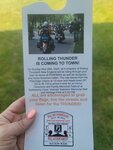
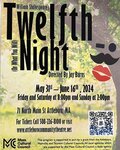
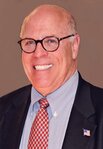
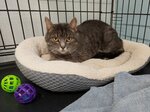
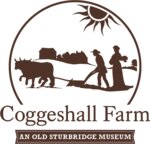
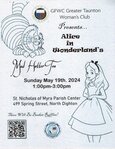
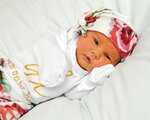
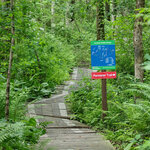









Comments
No comments on this item Please log in to comment by clicking here